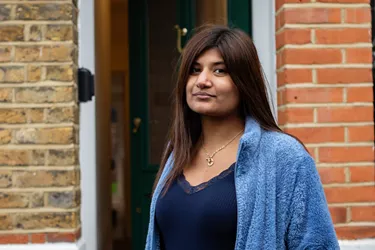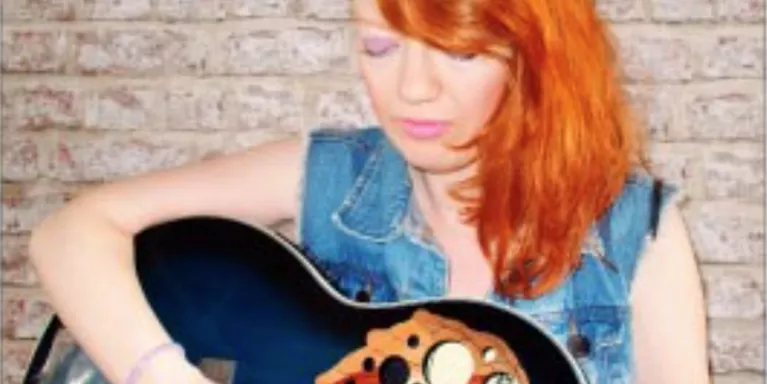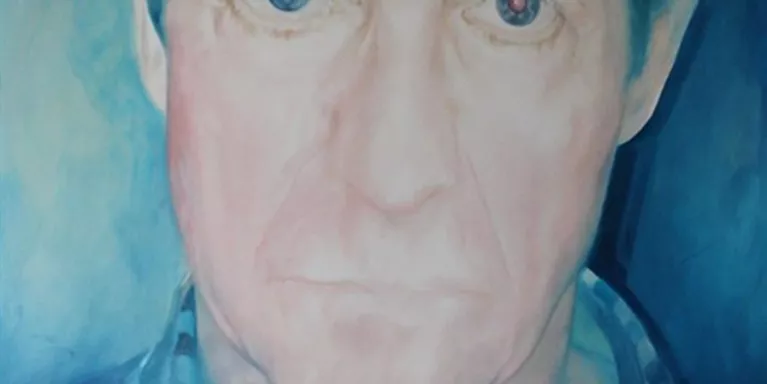There’s no such thing as a "Depression Day”
Jessica blogs about her experience with depression and how she feels about so-called 'Blue Monday'.
Jessica works in the City and is an award winning campaigner for Mind raising awareness of mental health.
Tonight after a perfectly lovely day I suddenly feel absolutely dreadful. Maybe I'm tired, or a bit stressed or getting a cold which is making my head hurt, or all or none of these things. I don't know, but I'm annoyed that my depression has just hit me out of nowhere again. I was feeling fine a few days before now I’m tearful and frustrated with the world and wondering how I will get through the next hour, let alone the next day, when I feel so useless and worthless.
"Blue Monday is absolute nonsense. It completely trivialises a serious illness that affects people, like me, every day."
What I’ve just written describes one of my days this week in January. But I've had depression for two decades now or maybe longer, and it could just as easily describe any day, in any season, at any time of day. I don't know how long I’ve really had depression because I wasn’t diagnosed (or talked about much) when I was a child but I know that some of the terrible feelings I still experience today remind me of feelings I had as a very young child.
"I think it will only make it harder for people to understand what depression is actually like..."
After spending a long time hiding my depression and feeling ashamed of it, I’ve finally spent just over a year being truly open with everyone about it, becoming a campaigner for Mind and even starting my own mental health campaign #redefiningresilience to support Mind. As part of my openness, I’ve tried to explain to people that although I might have a smiling face and make jokes, I can often feel very low, struggle with even the smallest aspect of a normal day, and have trouble feeling optimistic about life. Sometimes I feel so ill I find I can’t see the point of it at all.
"There’s no time of the year when I can guarantee I’m going to be fine and well..."
I’m really delighted to be a small part of the great work Mind has been doing to make sure everyone with mental health gets the respect and support that they deserve by increasing everyone’s understanding of what mental health challenges really mean. Mental health doesn’t discriminate, meaning it can affect anyone at any time. I am very lucky to have a good job, a wonderful husband and lovely friends and family, but that hasn’t stopped me from getting depressed or from having to manage my depression every day.
"Although I spend every day managing my depression, that doesn’t mean that I know when I’ll feel ill and when I’ll feel well..."
I now feel a bit less afraid of talking about my mental health with people at work or with people who don’t know me or that I have depression and anxiety, even though it isn’t the most comfortable thing to do. I think we still have a long way to go before people feel like mental health can be a normal conversation. So anything that stands in the way of that makes me feel angry and upset because I think it will only make it harder for people to understand what depression is actually like, and for more people to feel like it’s nothing to be ashamed of. So the idea of a day – Blue Monday – which is meant to be the most depressing day of the year, really frustrates me. It has no factual basis and was created by television channel Sky Travel and apparently it’s on 18th January this year, so we’re all supposed to feel terrible that day. Worse than at any time of the year. Really? That doesn’t sound like depression to me.
Blue Monday is absolute nonsense. It completely trivialises a serious illness that affects people, like me, every day. Depression affects people in many ways, from feelings of worthlessness and anger to lack of sleep. Depression is not, and never will be, something that happens on one day only.
"I just have to check in with myself daily that I’m doing what I can to look after myself."
I don’t know how I’ll feel on "blue Monday". Although I spend every day managing my depression, that doesn’t mean that I know when I’ll feel ill and when I’ll feel well. For example, I don’t find Christmas that easy; January and February are dark, wet and dreary and can affect my mood, but so can June and July when lots of people are talking about their happiness about holidays. In fact I’ve been treated in hospital with depression during two Julys… so there’s no time of the year when I can guarantee I’m going to be fine and well.
Sometimes there are difficult times in my life that have exacerbated my depression, like not getting a job I’ve applied for, having an argument with someone, a friend passing away, and the sense of defectiveness and shame I feel because a few friends or family members seem to deliberately avoid me or talking about my illness. Most of the time, though, life is ordinary so there’s no reason for me to be depressed, it’s an illness that I have had for a long time and I have to manage it. So I just have to check in with myself daily that I’m doing what I can to look after myself, with exercise, balanced nutrition, enough rest, my medication and my therapy, because I really can be blue any day.


Information and support
When you’re living with a mental health problem, or supporting someone who is, having access to the right information - about a condition, treatment options, or practical issues - is vital. Visit our information pages to find out more.
Share your story with others
Blogs and stories can show that people with mental health problems are cared about, understood and listened to. We can use it to challenge the status quo and change attitudes.

















